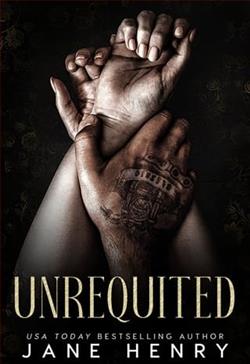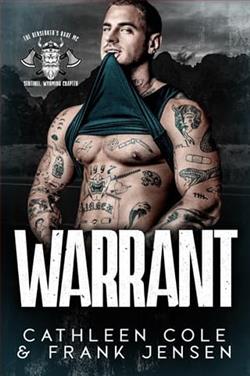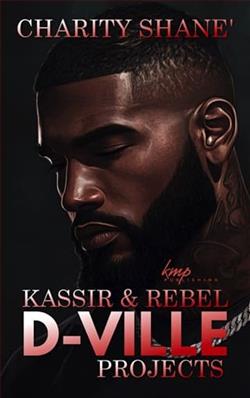Page 93 of Trapper Road
“But areyousure?”
She looks up at me then, her eyes darting to meet mine for the first time. I’ve seen dozens of photos of this girl, but in person I’m struck by the color of her eyes. They seem so much larger than they should be given the proportions of her face. Though perhaps it’s the wariness in her expression that gives that impression. “He confessed, so that means it was him, right?”
I swallow back my frustration, reminding myself that Willa is still young and has lived a sheltered life. Maybe she doesn’t understand the severity of the consequences for giving a false ID. She wouldn’t be the first. Especially given how shy she seems. It’s not difficult to imagine her succumbing to police pressure, and I know how badly Chief Parks wanted to close this case.
I choose my words carefully. “There are some inconsistencies in his statement. That’s why I wanted to talk to you.”
Her brow furrows in confusion. “I thought you wanted to talk because you’re investigating Juliette’s disappearance?”
“I was. I am,” I correct myself. Because if Trevor is innocent, that means we still don’t have an answer to what happened to Juliette. “That’s why I want to know if you’re sure it was Trevor you saw pick up Juliette that afternoon.”
She goes back to drawing circles in the dirt with her toe. “I mean, it could have been?” It’s a question, not an answer. There’s something she’s not telling me.
“Look, Willa, if you’re uncertain about your identification, you need to tell the police. You won’t be in trouble— they’ll understand. It’s common for eyewitnesses to change their minds after further consideration.”
She shakes her head, sending her hair in a tumble around her shoulders. “I can’t.”
“But if you’re not sure it was him—”
Willa winces at the sharpness in my voice, and I realize I may have been a little more forceful with her than I intended. But we’re talking about a young man’s life here. If Willa didn’t see Trevor the afternoon Juliette disappeared, that matters. It means he may be innocent after all. And it means we still don’t know what happened to Juliette.
I blow out a breath, trying to rein in my frustration. “Listen, Willa, I know you’re trying to do the best that you can. Being a witness in a case like this is a lot of responsibility. I know there’s pressure on you, and I just want you to know that it’s okay for you to take your time, or not be sure, or not remember. No one is going to blame you.”
She shakes her head before I even finish speaking. Her eyes meet mine again, and this time there’s something else lurking in their depths: fear. “You don’t understand. Mandy will be furious if I don’t back up her statement.”
It’s such an odd, unexpected statement. “Wouldn’t Mandy want you to tell the truth?”
She lets out a snort. “Mandy understands loyalty. And if you cross her—” She cuts herself off, biting her lower lip as an involuntary shiver makes it way through her. She’s scared. It’s obvious in the tone of her voice and the defensive way she holds her shoulders.
I’ve seen women with this same expression — this same guarded way of holding themselves. I’ve been that woman, when I was still with Melvin, afraid of him and what he might want from me. What he might do to me.
Friendships can be just as abusive as any romantic relationship.
I think back to the first time I saw Mandy, standing in the Larsons’ kitchen, appearing meek and mild. I remember thinking how strange it was that she still spent so much time at their house, a constant reminder of their missing daughter. My gut had sensed something off about her, but I’d ignored it. I chalked her strange behavior up to her just being a teen mourning her best friend.
I take my time, choosing my words carefully. “Are you afraid of Mandy?”
She says nothing, but I notice her chin begin to tremble.
“Do you think Mandy could have had something to do with Juliette’s disappearance?”
Again, it takes her a while to answer. Eventually she shakes her head. “Mandy loved Juliette.” Her voice cracks, and she sniffs, a tear dropping to her knee.
I don’t tell her that loving someone doesn’t always stop a person from hurting them.
* * *
I try stopping by Mandy’s house next, but there’s no one home. I leave a note with my card in the door and head back to the motel. I knock on the door to my kids’ room multiple times before Connor drags himself from bed and unhooks the chain.
“Good morning,” I tell him brightly.
He squints against the morning sun outside before grunting and flopping back on his bed. Vee gives a muffled “Mmf” before rolling over and pulling a pillow over her head.
It continues to amaze me just how long teenagers can sleep. I doubt I’ve slept more than six hours in a night since I learned the truth about Melvin. I decide to leave them be and return to my room. I spend some time going back over Juliette’s file and my notes, taking a more critical look at the various witness statements.
Willa’s identification of Trevor is weak at best, and certainly unreliable. It sounds as though Mandy’s ID may be as iffy, but I won’t know more until I have a chance to press her on it. The other witness statements are a hodgepodge of uncertainty. There’s a lot of “I’m pretty sure I saw…” and “I think it was around…” but nothing exact. It leaves me with no better sense of what happened to Juliette the afternoon she disappeared.
I comb through my notes, searching for loose ends and come across a rather big one: the youth group leader who disappeared a while back. I figure there’s no reason not to follow up on him. At least it’s somewhere to start.















